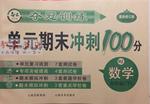
���� ����һ��֪ͨ�����ѧ���ڽ���������ʱӦ��ע������⣮������������ǰҪ��Ь�����˿α����ô��κζ�����δ���������ô����������ڽ�����ֻ��˵Ӣ��¿��Ժ�Ҫ�رջ�����һ���뿪���ң�
��� May I have your attentions��please��I have a few things to tell you��When you have lessons here in a English language lab��please be here a little early��Change yours shoes before entering the lab��Don't bring anything here besides your textbooks��When you are in��please don't touch the machines without permit��Always keep quietly and do as the teacher told you to��In class you can only speak English��not Chinese��You can use the recorder to make a copy of the listen materials��When class is over��turn off the machine here or leave the lab one by one��
That's all��Thank you!
������
1��attentions---attention���������ʣ�attention�Dz��������ʣ����Բ��ø�����
2��a---an������ڴʣ�����Ԫ����ͷ��English language lab�ùڴ�an��
3��early---earlier���������ݴʵıȽϼ��������ʾҪ��ԭ���絽��������early�ıȽϼ� earlier��
4��yours---your��������ʣ��������� shoes �����ݴ�����������your��
5��besides---except/but���������ʱ����������ʾ"���˿α����ô��κζ���"��������except/but��ʾ"����"��
6��permit---permission�����������ʣ����without��������permission����ʾ"δ������"��
7��quietly---quiet���������ݴʵ��÷���ϵ����keep�����ݴ�quiet�������ʾ"���ְ���"��
8��told---tells������ν�ﶯ�ʵ�ʱ̬���������۵������ڵ��£�����ν�ﶯ����һ������ʱ�ĵ����˳Ƶ�����
9��listen---listening�������ν�ﶯ�ʣ���������materials�ö�����listening����ʾ"��������"��
10��or---and���������ʣ�turn off the machine here �� leave the lab one by one����Ӧ�����������£�������and���ӣ�
���� ���ݴʣ�adjective�������adj����a�����ݴ������������ʻ���ʣ���ʾ�˻���������ʡ�״̬���������ij̶Ⱥû�������ݴ��ھ��������������ﲹ���ͨ�����ɽ����ݴʷֳ��������ݴʺ��������ݴ����࣬��λ�ò�һ������������ǰ�森


 ���ѵ����Ԫ��ĩ���100��ϵ�д�
���ѵ����Ԫ��ĩ���100��ϵ�д�
| �꼶 | ���пγ� | �꼶 | ���пγ� |
| ��һ | ��һ��ѿγ��Ƽ��� | ��һ | ��һ��ѿγ��Ƽ��� |
| �߶� | �߶���ѿγ��Ƽ��� | ���� | ������ѿγ��Ƽ��� |
| ���� | ������ѿγ��Ƽ��� | ���� | ������ѿγ��Ƽ��� |
��Ŀ������Ӣ�� ��Դ�� ���ͣ���Ϣƥ��
�鿴�𰸺ͽ���>>
��Ŀ������Ӣ�� ��Դ�� ���ͣ�ѡ����
| A�� | stuck in | B�� | stuck to | C�� | was stuck to | D�� | was stuck in |
�鿴�𰸺ͽ���>>
��Ŀ������Ӣ�� ��Դ�� ���ͣ��������
| 41��A��friend | B��colleague | C��customer | D��partner |
| 42��A��approached | B��persu aded | C��appreciated | D��instructed |
| 43��A��purpose | B��attempt | C��devotion | D��concern |
| 44��A��expectation | B��anxiety | C��confidence | D��disappointment |
| 45��A��smile | B��hug | C��gift | D��book |
| 46��A��after | B��until | C��unless | D��once |
| 47��A��announced | B��guessed | C��explained | D��admitted |
| 48��A��turn up | B��put up | C��keep up | D��end up |
| 49��A��unusual | B��powerful | C��useless | D��awful |
| 50��A��presented | B��equipped | C��supplied | D��filled |
| 51��A��casually | B��carefully | C��quickly | D��aimlessly |
| 52��A��confused | B��annoyed | C��embarrassed | D��touched |
| 53��A��illness | B��treatment | C��relationship | D��conversation |
| 54��A��missed | B��afforded | C��wasted | D��regretted |
| 55��A��end | B��happen | C��1ast | D��change |
| 56��A��rule | B��habit | C��record | D��promise |
| 57��A��help | B��matter | C��mean | D��occur |
| 58��A��fortnight | B��week | C��month | D��quarter |
| 59��A��common | B��tiring | C��different | D��pleasant |
| 60��A��close | B��sensitive | C��grateful | D��guilty |
�鿴�𰸺ͽ���>>
��Ŀ������Ӣ�� ��Դ�� ���ͣ��Ķ�����
�鿴�𰸺ͽ���>>
��Ŀ������Ӣ�� ��Դ�� ���ͣ��Ķ�����
�鿴�𰸺ͽ���>>
��Ŀ������Ӣ�� ��Դ�� ���ͣ��Ķ�����
�鿴�𰸺ͽ���>>
��Ŀ������Ӣ�� ��Դ�� ���ͣ����ĸĴ�
�鿴�𰸺ͽ���>>
��Ŀ������Ӣ�� ��Դ�� ���ͣ��Ķ�����
�鿴�𰸺ͽ���>>
����ʡ������Υ���Ͳ�����Ϣ�ٱ�ƽ̨ | �����к���Ϣ�ٱ�ר�� | ����թƭ�ٱ�ר�� | ����ʷ���������к���Ϣ�ٱ�ר�� | ������Ȩ�ٱ�ר��
Υ���Ͳ�����Ϣ�ٱ��绰��027-86699610 �ٱ����䣺58377363@163.com